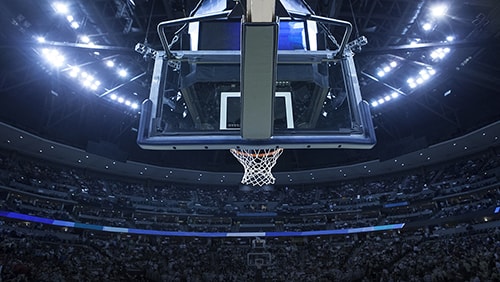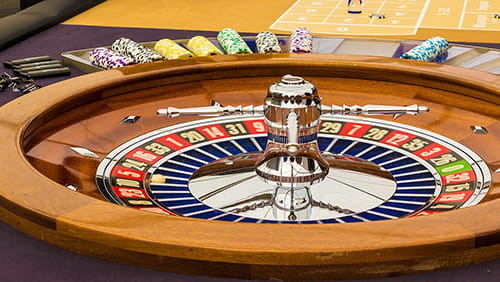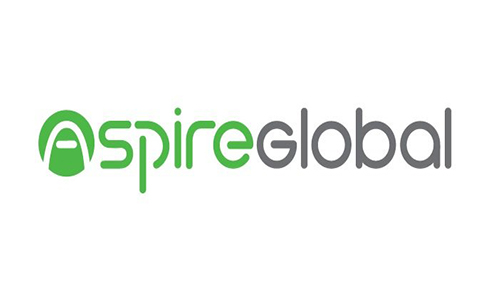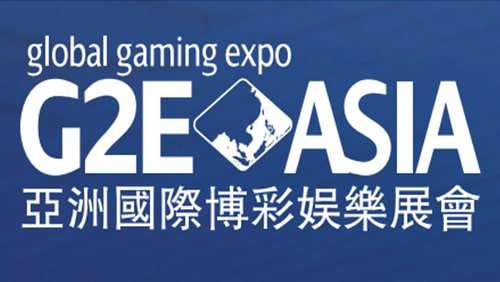Country House, winner of last year’s Kentucky Derby Presented by Woodford Reserve (G1; via disqualification), will stand at John Phillips’ Darby Dan Farm near Lexington for the 2021 breeding season. The son of Lookin At Lucky will stand for $7,500.
Monthly Archives: August 2020
Kentucky Derby Jockeys Must Be at Churchill by Aug. 31
Jockeys riding at Churchill Downs during the week of the Kentucky Derby Presented by Woodford Reserve (G1) will be required to arrive there by Aug. 31 and submit to COVID-19 testing before being cleared.

Atlantic City casinos to embrace local workers
Atlantic City casinos are set to open more job opportunities to local workers, with local government leaders pushing to phase out J-1 Visa workers. The Casino Association of New Jersey, the Casino Reinvestment Development Authority, and city and state government officials are pushing to provide further training and job opportunities for local residents.
Seasonal foreign workers have flooded Atlantic City casinos in past years. With limited job opportunities, local city officials are in favour of opening up casino job opportunities for several hundred local residents.
Casino Association of New Jersey President Steve Callender believes that the move to put local workers first, will help revitalise the community. “We’ve always been receptive of the idea of putting Atlantic City people to work first, so it’s going to have to be a program that is well thought out and organized and gets people on board.”
Atlantic City Mayor Marty Small Sr. has been proactively campaigning for the casino industry to step up and help bridge the job shortfall. Before the COVID-19 pandemic Mayor Small had secured commitments from Atlantic City casinos to provide employment options at a job fair. “This further clarifies my administration’s stance with the good people of the City of Atlantic City, working with the casino industry, towards employing more Atlantic City residents, which is a priority, I’m happy that this is going to happen,” Mayor Small said.

Two Sigma prepared to pay companies that don’t automate
Two Sigma is a massive tech investment firm that is now worth more than $60 billion. It’s also in somewhat of a conundrum because that fortune has been built, according to the company’s website, through the application of technology in “fields like machine learning and distributed computing.” That use of automated tools has facilitated its ability to generate huge returns, which any company wants to see, but is also, to some degree, viewed as an Achille’s heel of innovation. Two Sigma believes that too much automation is now threatening the global workforce and is prepared to incentivize companies to avoid replacing employees with automated solutions.
Two Sigma has launched Two Sigma Impact, which “will combine active, principled ownership and data science with the goal of delivering superior returns and positive social outcomes.” The goal is to facilitate “workforce impact” investments in companies in the education, healthcare, consumer and business-service industries to allow the entities to “unlock human potential.” Two Sigma Impact will primarily target the North American region, looking specifically at mid-size companies.
For the next five years, the company plans on putting up anywhere from $50 million to $100 million per investment, according to Bloomberg. Those investments will be backed by Two Sigma’s technology resources, and the endeavor will be led by a group of 12 individuals, including David Saltzman and three others who are described as having previously been involved with Bain Capital. Bloomberg’s attempts at getting a statement out of Two Sigma for more details were met with silence.
David Siegel, who co-founded Two Sigma with John Overdeck and Mark Pickard, has been worried about too much automation creeping into the business industry for years. The MIT (Massachusetts Institute of Technology) graduate said in 2016 that he was “very worried” that automation would strip away jobs from workforces everywhere, and he hasn’t been wrong. In almost every industry, and even more now because of the coronavirus, companies have been turning to automation and robots in order to cut costs.

Fundstrat report shows Bitcoin SV ready for enterprise usage
Bitcoin SV’s (BSV) principle of sticking to the original vision of Satoshi Nakamoto looks like it’s paying off. Fundstrat, the independent research firm specializing on digital currency assets, has released its latest assessment of BSV, and their conclusion is it’s ready for enterprise usage.
In their July 28 paper titled BSV: Business Use Cases of the Bitcoin SV Blockchain, David Grider CFA lays out all the different wants BSVs massive scaling of the blockchain and consistent protocol can help enterprises today. The report details the BSV vision, including the four pillars of Stablity, Scalability, Security and Safe, Instant Transactions, as well as an ecosystem overview, company profiles, and up to date blockchain metrics.
Using these principles, which have created for a digital currency which is not only fast, but offers very low transaction fees, Grider notes “they reduce global business challenges by re-engineering the trust models underlying internet services using publicly verifiable, immutable, user-owned blockchain data and globally enforceable smart contracts.” He adds: “All these innovations open the door for next gen businesses.”
The report is a handy reference for any company looking to get into the BSV space, listing out 320 companies and services already taking advantage of the digital currency, 80 resources, and 30 protocol layers. It acts as a great guide, with profiles on companies like EHR, Bitboss and Kronoverse, which aspiring BSV companies could look to as a template to get started.

New Jersey gambling numbers start to rebound in July
New Jersey’s gambling scene is starting to return to normal. Although brick and mortar casino figures are down year over year, the state saw a pretty healthy return from lockdown, and online numbers are some of the best in 2020.
Casinos and horse tracks brought in $264.5 million for the month of July, down 21% from July 2019. But that came with operations only being allowed 25% of their capacity, so not bad all things considered.
But online gambling was where things start to shine. The state saw $87.4 million for the month from online casino play, blowing past the $2 billion lifetime road marker. Sports betting saw $29.5 million in revenue, up 65% from the year before despite only getting a full slate of sporting options late in the month.
“Even with public health precautions in place, there was great concern that patrons would not yet feel safe visiting the casinos in person, and there would be an extended ‘COVID drag’ on the industry,” said Jane Bokunewicz, coordinator of a gambling and tourism institute at Stockton University.

Blockchain touted as a powerful crime fighting tool
The case for blockchain as a crimefighting, regulatory friendly choice for enterprises is getting stronger. Mayor Yang Yiwen of China’s Loudi city has cited the technology’s crimefighting capabilities as a powerful “weapon” to be used against crime.
The mayor is implementing a trial blockchain project in his city, combining computing and big data to allow telecommunication operators, banks municipal departments and utilities to share data.
At a meeting of officials from the Municipal Public Security Bureau, Yang Yiwen specifically promoted how this could be used to help fight crime and collection. Having impeccable data shared across these different organizations would allow for more accurate, deeper investigations, he said.
Chinese governments have increasingly turned to blockchain technology for all sorts of uses. Shanghai has turned to the technology to help record court hearings, making them less vulnerable to corruption. China’s been so impressed with the results of blockchain evidence that they’ve moved to make it legally binding evidence in the Supreme Court.

The NBA is closer to crowning a winner as playoff brackets set
The NBA Bubble at Disney World in Orland, Florida has been everything basketball fans could have hoped for. There have been some exciting underdog wins, a few instances of players butting heads – literally – and athletes escaping to score some hot wings. As the regular season draws to a close, the playoff bracket is now set, and fans can look forward to a lot of the same hot action when the postseason begins next Monday.
Before the postseason run to the championship can get going, there will first be a play-in tournament held for the Western Conference, which will see the Portland Trail Blazers (currently in eighth place) taking on the Memphis Grizzlies (ninth place). Because they’re only four games apart, this will be used to determine the eighth seed for the playoffs, which the Blazers can take if they win the first game on the play-in tournament. If, on the other hand, the Grizzlies take Game 1, they can end up in eighth if they then take the second game. This year, seeding isn’t as important as it has been in other seasons. There is no true “home court” advantage since everyone’s in the bubble.
Once that series is decided, the winner will take on the LA Lakers in the first round of the playoffs. The Oklahoma City Thunder are going up against the Houston Rockets, the LA Clippers take on the Dallas Mavericks and the Denver Nuggets will battle the Utah Jazz, finishing out the conference semifinalists.
In the East, the layout for the first round of the playoff bracket is already set and no play-in game is needed. The Milwaukee Bucks, who lead the conference, will go up against the Orlando Magic, the Miami Heat meet the Indiana Pacers, the Toronto Raptors will face the Brooklyn Nets and the Boston Celtics will take on the Philadelphia 76ers.
Greece’s online slot market gets an ugly makeover
Earlier this year, Greece submitted its updated iGaming framework to the European Commission (EC) to get the latter’s seal of approval. That framework received the commission’s blessing, and the country’s iGaming industry was off to the races. There has been substantial interest on the part of operators to get involved with the Greek market, but changes that are being made to the slot machine segment certainly won’t make them happy. Greece is following in the footsteps of the UK and a small handful of other countries, and will severely handicap a lot of iGaming activity.
According to Greece’s new gambling rules, which were just published through the country’s official Gazette media outlet, digital random number generator (RNG) games are getting an overhaul. Going forward, online slots will have to implement a stake cap of €2 ($2.36), a wait time between spins of at least three seconds and avoid being advertised anywhere other than on the operator’s site. In addition, slot winnings are limited to €5,000 ($5,900) per gaming session.
The three-second rule will apply to all RNG-based games, except poker. Across the board, no Internet-based game will be able to offer a prize of more than €70,000 ($82,614), and all online gamblers are required to establish limits for deposits, losses and duration of play going in. If a user gets to 80% of their limits, operators will be required to alert them.
Affiliates will be allowed to work with the operators, but under strict control. They have to sign agreements with the operators that cover things like the method of calculation of fees and how these are paid, and the operator is required to inform Greece’s gaming regulator, the Hellenic Gaming Commission, of any affiliate agreements.

Epic Games lawsuit against Apple could loosen platform restrictions
Apple looks like it doing its best to piss off all of the video gamers in the world. After a crafty move by Epic Games, they are now facing a lawsuit that could spell an end to their total control over iPhone devices.
This story really started on August 5, when Microsoft announced they would not launch their upcoming xCloud gaming service on the iOS app store. Apple wouldn’t approve their service, claiming they could not review cloud games to ensure they meet the strict standard of platform. Industry insiders though believe this has much more to do with Apple not getting a cut of profits Microsoft would make from the service.
Epic appears to have proven that point with a series of moves designed to make Apple show its hand. Fortnite, one of the most popular games in the world, was available on the App Store up until August 12. Then, publisher Epic Games introduced a payment option that would not let Apple collect its standard 30% fee for all in-app purchases, and gave all of the savings to the consumer. Apple responded by removing Fortnite from the App Store.
In a comment to The Verge, Apple stated:

Bloomberry hopes Solaire North reopening helps after diasterous Q2 2020
Bloomberry Resorts & Entertainment, operator of Manila’s Solaire Resort and Casino, is hoping that the pandemic is over by the time Solaire North is ready to open. It may need it to, as the business did not do very well during the second quarter of the year.
Gross gambling revenue (GGR) fell 95% year over year for the period of April to June, with P686 million ($14 million) coming in. That results in a loss of P4.7 billion ($96 million), a huge swing from their P2.5 billion ($51 million) in profit for the same period the year before.
Solaire has been pretty much shut down since mid-March due to the Covid-19 pandemic. The only real income that came in was from dry-run operations for in-house and select guests, running since mid-June. Solaire’s VIP, mass table and EGM GGR were P121.7 million ($2.5 million), P303.7 million ($6.23 million), and P261.1 million ($5.36 million) respectively, making for drops of 98%, 93% and 94%.
But despite these bad times, the operators plan to build and open Solaire North in Quezon City is pushing ahead. Chairman and CEO Enrique Razon said Bloomberry hopes it will be a part of the company’s rebound once the economy reemerges from its slumber.

Evolution Gaming chosen by PointsBet as online casino developer
The iGaming playground is constantly undergoing changes, an indication of the massive importance the segment has in the commercial world. Deals are always being struck, new partnerships are always being forged and, where common sense prevails, regulations are being introduced to allow the sector to evolve in a responsible manner. One of the companies in the industry that has been extremely active this year is PointsBet, which just recently scored two significant wins with approvals in New Jersey and Indiana. On the heels of that news, the Australia-based gaming operator is bringing in Evolution Gaming to provide its table games once it’s ready to launch its Live Casino platform in the U.S.
Evolution announced in a press release (pdf) yesterday that it had been chosen by PointsBet to offer its live casino services to the operator. There is already one Live Casino studio operated by Evolution in the U.S., located in Atlantic City, and the company is working on putting up two more, one in Michigan and the other in Pennsylvania. The Pennsylvania facility is expected to be ready before the end of this year and the Michigan venue should be launched sometime in 2021. Another Live Casino studio operating in the Republic of Georgia in Europe had to be shut down temporarily this past March, but was able to start to reopen just a couple of weeks later.
Seth Young, chief innovation officer at PointsBet, said of the new partnership with Evolution, “We are thrilled to partner with Evolution Gaming to launch Live Casino technology in U.S. jurisdictions, where we plan to offer our proprietary online casino platform. The addition of Evolution Live Casino extends the appeal of PointsBet’s premium product in the rapidly growing U.S. market.”
PointsBet expects to be able to launch its live casino and iGaming options in New Jersey sometime next year, provided there aren’t any more major global catastrophes that might cause the world to stop spinning. Having only stepped foot in the U.S. with its sports gambling operations a little more than a year and a half ago, the company has made a lot of progress since then. As with New Jersey and Indiana, it is also set up in Iowa as a mobile sports gambling provider and operates a retail sportsbook in Iowa. Next up, PointsBet is looking to expand into Colorado, Illinois and Michigan, three of the hottest states currently seen for expansion.

Imperial Pacific can’t walk away from $15-million license fee as hoped
This past June, gaming regulators for the Commonwealth of Northern Mariana Islands (CNMI) gave Imperial Pacific International (IPI) a list of ultimatums and a set timeframe within which they had to be fulfilled. The Commonwealth Casino Commission (CCC) was apparently, and finally, getting tired of the casino operator’s continuing efforts at skirting laws, not fulfilling its financial obligations and general circus-style management. One of the requirements was that IPI make good on its outstanding license fee, which, in typical IPI fashion, the company tried to avoid having to pay. It already said it didn’t have the money to cover the fee, but the CCC is sticking to its guns and plans on getting paid at any cost.
When the CCC presented its list of items IPI needed to fulfill in June, it gave the casino operator a couple of weeks to get its house in order, threatening to revoke its license if it didn’t comply. That deadline came and went, with the commission drawing a new line in the sand to give IPI more time. It gave the company until August 12 to come up with the $15.5 million it is supposed to pay for its license, but this, too, came and went, and the CCC still hasn’t taken the necessary action to find closure to the ongoing debacle.
IPI told the CCC on August 11 that it wouldn’t be able to come up with the money, to which the commission issued its response yesterday. Chairman Edward DeLeon Guerrero asserted, “IPI needs to fulfill its obligations, not only to the people of the CNMI, but also to their employees, vendors and other parties who are contracted to work with their organization. We are deeply disappointed in IPI’s decision to request an abatement of their annual license fee and casino regulatory fee. The CCC is continuing its enforcement and investigations of its recent Orders that encompass the entire range of any payables or contributions owed to public entities and is prepared to seek all remedies under the CNMI gaming laws and under the Casino License Agreement as they relate to IPI’s nonpayment and other non-compliance matters.”
Guerrero reiterated the commission’s willingness to take more drastic measures in order to get IPI to behave like a respectable business, warning that it could decide to suspend IPI’s license, issue financial sanctions or even revoke the license. Only one of those options makes any sense at this point. Suspending the license means IPI can’t generate any revenue, which it desperately needs in order to cover the hundreds of millions of dollars it is expected to have to pay as a result of ongoing lawsuits and the missing license fee. Trying to penalize the company financially is an exercise in futility since it has already stated it doesn’t have the money to cover the license. That leaves only a license revocation that, at this point, would be in the best interest of everyone.

French casino operator Cartouche back in the Japan IR game
It was a little more than a week ago that French casino operator Groupe Cartouche SA announced that it was backing away from plans to get involved with Japan’s integrated resort (IR) scene. It had been working with Oshidori International Holdings to attempt a run at a possible gaming license in Nagasaki, but decided to cancel the partnership with no substantial explanation given at the time, other than to indicate “differences in vision.” The cat’s out of the bag now, and it appears that Cartouche may have nixed that deal to get in bed with someone else. The company is now part of a consortium that has plans to vie for an IR license in Japan once the country finally moves forward.
Pixel Companyz, a FinTech and renewable energy company out of Japan, announced today that Cartouche has joined the consortium and that it will be responsible for operating the casino. Where the group plans on targeting its efforts in the country still isn’t known, although Nagasaki and Osaka are likely choices. These two have consistently been on the shortlist of prospective locations that would be included among the first three IRs approved by Japan.
Pixel adds in its announcement, “Pixel Companyz and Groupe Partouche will work together with their consortium partners to plan, develop and operate a premier integrated resort in Japan. The consortium aims to develop an IR unique to Japan that will highlight the tourism assets, food culture, brands and the hospitable culture that the country has to offer.”
The consortium will also be able to count on the support of TTL Resorts, which Pixel asserts has “wide-ranging experience in data analysis and investment aspects of the gaming industry.” However, multiple attempts at finding out more about the company haven’t produced any results, other than the mention of the company related to the new consortium. The arrangement between Pixel and TTL Resorts apparently involves both an injection of capital and business support.

Aspire Global continues ascent in Swiss market with Casino Davos partnership
Aspire Global’s Pariplay, a leading game studio and game aggregator, has expanded its presence in the Swiss iGaming market through a partnership with operator Casino Davos. The agreement, which will see Pariplay provide gaming content to Casino Davos’ online offering Casino777.ch, marks the second Swiss gaming operator to offer Pariplay’s renowned casino content, following its ISO certification in July this year.
This sequence of partnerships in Switzerland aligns with Pariplay’s 2020 goal of expanding its footprint throughout the global iGaming space, by continuing to establish a presence in recently regulated markets with strong growth potential. Casino Davos is a prominent operator in Switzerland and provides Pariplay with a significant platform for its top of the line casino content.
As reported by the Swiss gaming regulator Eidgenössische Spielbankenkommission (ESBK), Casino Davos ranks fourth in Switzerland’s gaming market in terms of revenue. Casino Davos is also highly recognized throughout Europe due to its landbased operations, which will help bolster Pariplay’s position in the European gaming market.
Léonard Huguenin, Online Casino Manager at Casino Davos said: “We are very excited about our partnership with Pariplay and the opportunity to offer their state-of-the-art casino games, which are hugely popular across regulated Europe, to our players via the Casino777.ch gaming site. We are eagerly awaiting the addition of even more Pariplay content to continue to boost our online offering and increase acquisition and retention.”

G2E Asia announces focus on 2021, postpones 2020 events
Macau – August 13, 2020 – Global Gaming Expo (G2E) Asia – the marketplace for the Asian gaming and entertainment industry – announced the rescheduling of 2020 events in light of the ongoing COVID-19 pandemic. G2E Asia will return to the Venetian Macao, from May 25-27, 2021, while G2E Asia @ the Philippines will reconvene at the Manila Marriott Hotel from November 10-11, 2021.
“G2E Asia made the difficult decision to postpone its 2020 shows as continued travel and restrictions present too much uncertainty for holding successful and safe events this year,” said Josephine Lee, chief operating officer, Reed Exhibitions China. “In consultation with our customers, exhibitors, and local authorities, we explored every option to safely hold these programs this year, but ultimately found the best course of action is to postpone for 2021.
“By shifting our focus to 2021, we can ensure that we meet the high expectations for these important events that we share with our valued attendees and exhibitors. This postponement will ease show preparations for all G2E stakeholders and allow us to focus on the safest and most successful G2E Asia events yet in 2021.
ABOUT G2E ASIA
Belinda Stronach Settles Litigation With Father
Litigation between Frank Stronach and his daughter, Belinda, chairman and president of The Stronach Group, has been dismissed by the Ontario Superior Court of Justice as a result of a settlement agreed to by the parties, TSG said in a release.

As easy as Atletico, Barcelona and Celtic: Is football forgetting about COVID-19?
The fight against COVID-19 will doubtless one day be assimilated to a football match. When we eventually look back on this summer hiatus between fan-free Premier League seasons, however, which period of the game will it represent?
Will it be the last few minutes of playing around with possession in the opposition’s half, playing for a corner and a little wasted time before victory is confirmed? Or will it be a first-half injury time equaliser, proof that there is plenty to play for in the second half of the battle?
The actions of several clubs and individuals in recent weeks suggest that unless more is done within football itself, we could be about to concede a second early own goal as we give ourselves a mountain to climb instead.
Football has put a huge amount of effort into the global restart project led by the German Bundesliga and continued by competitions such as La Liga, the English Premier League and both the Champions League and Europa League. But have the clubs or the individual players forgotten that? Recent flouting of the rules might suggest so.

Ravid Garbi denies Chris Moorman a second WSOP bracelet, wins 6-Max championship
British poker legend Chris Moorman got so close to a second WSOP bracelet but missed out at the last as he lost heads-up for Event #58, the $5,000-entry No Limit Hold’em event won by Ravid Garbi for $531,513 in the WSOP 2020 Online Series.
With 672 entries in this huge $5,000-entry event, the Israeli player Garbi – who had previously cashed for just under $30,000 – would win his first WSOP bracelet and over a quarter of a million dollars in the process, relegating Moorman to a runner-up finish worth $398,393 instead, but there was plenty of other drama as the action was of a high standard throughout.
When Kathy Sathaphan was eliminated on the bubble, that meant over 90 players inched into the money, with Daniel Negreanu yet again one of them, the GGPoker pro cashing in 39th place for $14,599. He was joined on the rail by plenty of other big names who made profit but not headlines, such as Brandon Adams, David Peters, Connor Drinan and partypoker pro and Negreanu’s former PokerStars stablemate Bertrand ‘ElkY’ Grospellier.
With the Belgian poker legend Davidi Kitai crashing out in 12th place, play eventually reached the final table of nine, where weary yet exceptionally skilled players were worn down to their true elements. It made for a superb final table which would last a full two hours before its conclusion.
March to the Arch Returns to Canada for King Edward
Eight weeks after March to the Arch finished sixth in the June 20 Wise Dan Stakes (G2T) at Churchill Downs, his 2 1/4-length defeat looks better than it did at the time. Exiting that key race, he is a contender in the King Edward Stakes (G2).